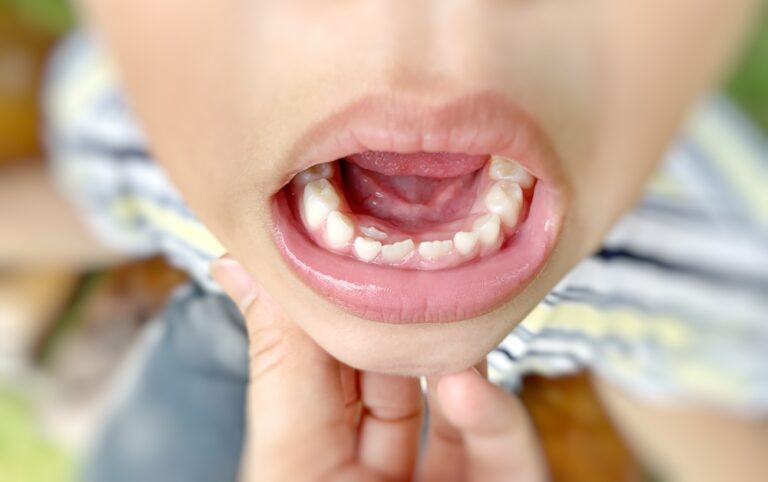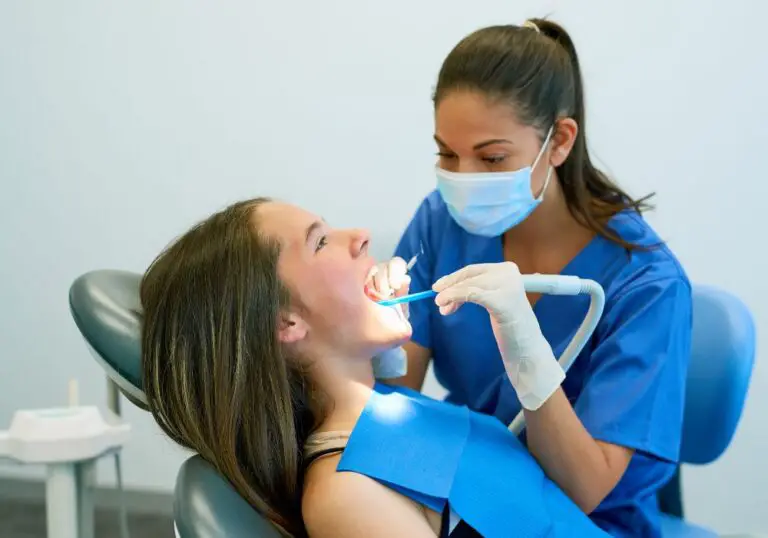If you’re experiencing jaw pain even months after getting your wisdom teeth extracted, you’re likely worried that something has gone wrong. But some lingering discomfort and stiffness is actually not uncommon during the healing process. Here’s an in-depth look at the possible reasons for delayed jaw pain following wisdom tooth extraction, along with advice for finding relief.
Wisdom teeth extraction explained
Before diving into the reasons for persistent jaw pain after surgery, let’s start with an overview of wisdom teeth and why they may need to be removed.
Wisdom teeth are the third and final set of molars that emerge during late adolescence or early adulthood, typically between the ages of 17 and 25. These teeth are located in the very back corners of the upper and lower jaws, behind the second molars. Most people have four wisdom teeth – one in each quadrant.
The wisdom teeth are named as such because they tend to come through or “erupt” at a more mature age when a person has accumulated some wisdom! But in modern times, there is often no functional need for these teeth since we tend to have smaller jaws capable of housing only 28 permanent teeth.
When wisdom teeth become impacted – meaning there is insufficient room for them to fully erupt through the gums – they can cause problems like pain, infection, tooth decay, gum disease, and crowding or misalignment of other teeth. This is why dentists will often recommend wisdom tooth extraction surgery to remove one or more problematic wisdom teeth and prevent future complications.
Wisdom tooth extraction is one of the most common dental surgeries performed, with over 5 million procedures done in the United States every year. Oral surgeons (dentists with specialized training in extractions) numbs the area around the tooth with a local anesthetic before removing any bone or tooth tissue blocking the tooth’s eruption.
After successfully extracting the wisdom tooth, they thoroughly clean the socket (hole in the bone) and place sutures to close the gum flaps. Recovery typically takes one to two weeks for the extraction sites to mend and return to normal function.
It is common to have some pain, swelling, bruising, and stiffness for a few days after having your wisdom teeth taken out. But ongoing jaw pain lasting for weeks or months post-surgery is not a normal part of recovery. Next, let’s look at some of the possible explanations for this delayed discomfort.
What’s causing your lingering jaw pain?

There are several possible causes for jaw pain and tightness that persists or comes back long after you’ve had your wisdom teeth removed:
Surgical complication – dry socket
One of the most common reasons for throbbing, severe pain emerging a few days after surgery is dry socket (alveolar osteitis). This painful condition affects about 5% of all wisdom tooth extraction patients.
Dry socket occurs when the blood clot that initially formed in the empty tooth socket gets prematurely washed away or disintegrated. This leaves the underlying bone and nerve endings exposed to air, food, fluid, and anything else in the mouth. The result is intense, radiating pain and sometimes bad odor or taste coming from the open socket.
Risk factors for developing dry socket include smoking after surgery, drinking through a straw, vigorous rinsing/spitting, and taking certain medications like birth control pills. But dry socket can develop even if you follow all post-op instructions properly. The pain usually starts 3 to 5 days after extraction but may not hit until a week or two later.
Treatment involves having the oral surgeon pack the dry socket with medicated dressings to protect the exposed bone. This provides pain relief while the area gradually re-forms tissue and closes up again. With prompt treatment, the throbbing pain should subside within a few days.
Complication – bone infection
A serious but less common complication that can cause delayed onset jaw pain is infection in the extraction site or surrounding bone, known as osteomyelitis. Telltale signs of infection include:
- Severe, throbbing pain that steadily worsens over time rather than improving
- Swelling, redness, or pus around the extraction site
- Bad odor or taste coming from the area
- Fever, chills, nausea, and generally feeling unwell
Bone infections most often strike people who have immune deficiencies or certain pre-existing conditions like diabetes or osteoporosis. But even those who are generally healthy can develop osteomyelitis if wisdom tooth extraction sites don’t heal properly.
Bacteria enter through the open wound and spread into the bone, which can happen any time from a few days to a few weeks after surgery. In rare cases, the infection may not cause symptoms until 2 months or even longer post-extraction.
Treating osteomyelitis requires strong antibiotics, pain management, and sometimes surgical drainage or bone debridement. So if your pain continues to escalate or you have other signs of infection, promptly contact your oral surgeon for assessment and treatment. Leaving it untreated can have serious consequences.
Surgical injury – nerve damage
The wisdom teeth are situated close to several large sensory nerves that provide feeling to the lower jaw, lips, chin, cheeks, tongue, and teeth. These include the trigeminal nerves and the inferior alveolar nerves.
Sometimes during extraction, especially of lower wisdom teeth, these nerves can get stretched, compressed, or even severed by mistake. This is known as a nerve injury, and it may result in lingering pain, tingling, numbness, or extreme sensitivity in the distribution of the affected nerve.
The inferior alveolar nerve is one that’s commonly injured during lower wisdom tooth removal since the roots are so close. Lingering numbness or odd sensations in your lower lip, chin, or lower teeth could signal damage to this nerve.
Fortunately, nerve damage from wisdom tooth extraction is not common, occurring in less than 1% of cases. When it does happen, the nerves often recover gradually over several weeks to months. But some symptoms can persist long-term without treatment.
Oral surgeons should take care to avoid nerve injury when extracting wisdom teeth. Let your surgeon know right away if numbness or paresthesia lingers longer than 6-8 weeks so they can monitor your recovery and provide supportive therapy as needed. Severe injury may require specialist referral or microsurgery to repair.
Muscular issues – TMD or TMJ disorders
The temporomandibular joint (TMJ) is the hinge that connects your jawbone to your skull. It relies on a network of muscles working in coordinated action to move your jaw up and down and side to side. So it makes sense that this intricate system is prone to strain, tension, and imbalance.
Having your mouth propped wide open for an extended time during wisdom tooth extraction puts greater than normal demands on both the jaw muscles and TMJs. This can aggravate underlying joint dysfunction or trigger temporomandibular joint disorder (TMD) symptoms like:
- Jaw muscle tightness or spasms
- Tenderness of the jaw joints
- Clicking, popping noises when opening the mouth
- Locking open or closed
- Pain or ache when chewing or with jaw movement
The inflammatory swelling that occurs post-surgery adds even more stress to the TMJ and surrounding tissues. People with pre-existing TMD or jaw injury may be more prone to flares after oral surgery.
The good news is that surgery-induced TMD symptoms often resolve gradually over 2-6 weeks as the muscles relax and inflammation subsides. But some people do experience persistent TMJ problems requiring specific physical therapy and treatment.
Managing ongoing jaw discomfort

If pain or limitation in jaw function lingers longer than the typical recovery period, don’t panic. There are many things you can try at home and with your oral surgeon’s guidance to ease discomfort and help your body heal:
- Take over-the-counter pain relievers like ibuprofen or acetaminophen to reduce post-op inflammation and pain. Use the medications as directed.
- Apply hot and cold packs to provide pain relief and relax tense jaw muscles. Use a towel as a barrier when applying ice to avoid tissue damage.
- Adhere to a soft, liquid diet in the weeks following surgery to avoid chewing with the sore extraction sites. Soups, smoothies, mashed foods and the like are ideal during recuperation.
- Rinse very gently with warm salt water after eating, being careful not to create suction pressure. Let water passively fall into your open mouth instead of forceful swishing.
- Rest your jaw joints by limiting talking, chewing, and straining your jaw. Take several rest periods during the day to give the muscles and joints a break.
- Consider physical therapy if pain or tightness localized to the jaw joint and muscles persists beyond a month. Stretching, massage, and mobilization can help.
- Get plenty of sleep with your head elevated on extra pillows to maximize rest and healing. Ongoing fatigue can hinder the recovery process.
- Avoid behaviors that can displace healing clots like smoking, drinking with straws, vigorous mouth rinsing, and touching the sites frequently.
If pain fails to improve with home care after 6-8 weeks, it’s important to schedule a follow up appointment with your oral surgeon for reevaluation. They will want to examine your extraction sites, review your symptoms, and possibly order imaging tests to assess for issues like dry socket, bone fragments, or infection.
Additional treatments that may be recommended
Based on their assessment of your continued jaw pain, your dentist may recommend some of the following treatments to get you back on track to feeling normal again:
- Pain medication such as prescription-strength ibuprofen or narcotic analgesics to better control discomfort
- Antibiotic therapy if any signs of lingering infection in the bone or extraction sites
- Debridement to remove debris from the socket that is impairing healing
- Extraction site irrigation using a syringe to dislodge food and rinse away bacteria
- Tissue grafting to fill defects or stimulate closure of problematic extraction wounds
- Bone grafting to stimulate bone regeneration if the site is not mending properly
- Night guard or bite plate to protect the jaw joints and muscles from nighttime clenching or grinding during sleep
- Referral to a TMJ specialist for customized physical therapy, splint therapy, massage, or possible arthrocentesis if TMD is diagnosed
- Root canal treatment of any adjacent teeth affected by infection spread from extraction sites
- Dental implant placement if a wisdom tooth socket fails to heal properly on its own
- Revision surgery to remove lingering tooth fragments or smooth sharp edges of bone that may be irritating tissues
When to see an oral surgeon for evaluation?

As we’ve covered, mild occasional soreness or stiffness lasting up to 6 weeks is normal and no cause for alarm. But you should arrange an office visit if any of the following signs of complications arise:
- Severe pain that progressively worsens over time rather than improving
- Throbbing pain combined with bad odor or taste coming from the extraction site
- Numbness, tingling, or paresthesia that persists longer than 6-8 weeks post-extraction
- Difficulty fully opening your jaw or chewing due to limited range of motion
- Swelling, redness, pus drainage or other signs of infection
- Bleeding that won’t stop or seems excessive when changing gauze
- Pain or sensitivity in other teeth near the extracted wisdom tooth
- Lymph node swelling around jaw or neck on the affected side
- Persistent headaches, jaw popping/clicking, or difficulty swallowing
- Fever, chills, nausea/vomiting or other illness symptoms
When in doubt, don’t delay getting examined – treating any complications early is key to an optimal outcome. With the right follow-up care, most patients can achieve full relief from jaw pain and normal function within a few months of wisdom tooth removal surgery.
Frequently asked questions about lingering jaw pain
Here are answers to some common questions related to dealing with jaw pain after wisdom tooth extraction:
Is it normal for my jaw to still hurt weeks after getting my wisdom teeth out?
Some mild soreness, stiffness, or tiredness in chewing muscles 1-2 weeks post-op is very common and not alarming. But constant throbbing pain or severely limited jaw function beyond 2-3 weeks indicates complications requiring evaluation.
Can the pressure of keeping my mouth open during surgery cause later TMJ problems?
Yes, holding the mouth open extra wide for an extended time can strain the jaw muscles and joint. Pre-existing TMJ issues can flare up. Symptoms usually resolve within 6 weeks with rest and gentle stretching. See an oral surgeon if pain persists longer.
What home remedies can I try to ease jaw discomfort after wisdom tooth removal?
Cold packs, OTC pain meds as directed, soft foods, hydration, gentle heat, and jaw rest are all helpful at-home remedies. Just avoid forceful rinsing, spitting, drinking with straws, or touching the sites – activities that can dislodge healing blood clots.
How long might numbness last in my lip or tongue after getting a lower wisdom tooth out?
Temporary numbness can last for several hours from the local anesthetic used during surgery. But lingering numbness beyond 2 months may signal injury to the inferior alveolar nerve requiring evaluation and possible specialist treatment.
Is it possible for infection to develop weeks after I had my wisdom teeth extracted?
Yes, dry socket and infections in the bone or extraction sites can occur days or weeks later, causing severe pain. See an oral surgeon promptly if the pain escalates or you notice pus, swelling, or fever – a prescription antibiotic will be needed.
When can I resume normal activity like exercise after wisdom tooth removal?
Recovery varies, but plan on taking it easy for at least 1 week after surgery. Avoid vigorous exercise and extensive talking that can stress the jaw joints initially. Ease back into your routine over 2-4 weeks as chewing improves. Check with your surgeon.
Conclusion
Experiencing jaw stiffness, soreness, or even more intense pain lasting weeks or months beyond your wisdom tooth extraction can be upsetting. While not an expected part of typical recovery, it is fairly common and usually treatable.
Be patient with your body’s healing process, adhere to your surgeon’s post-op instructions, and use at-home remedies to find relief from lingering discomfort. But do follow up promptly if severe pain, swelling or other signs of complications develop.
With proper assessment and treatment when required, your oral surgeon can help get your recovery back on track so you can soon enjoy an optimally functioning, pain-free jaw again.






